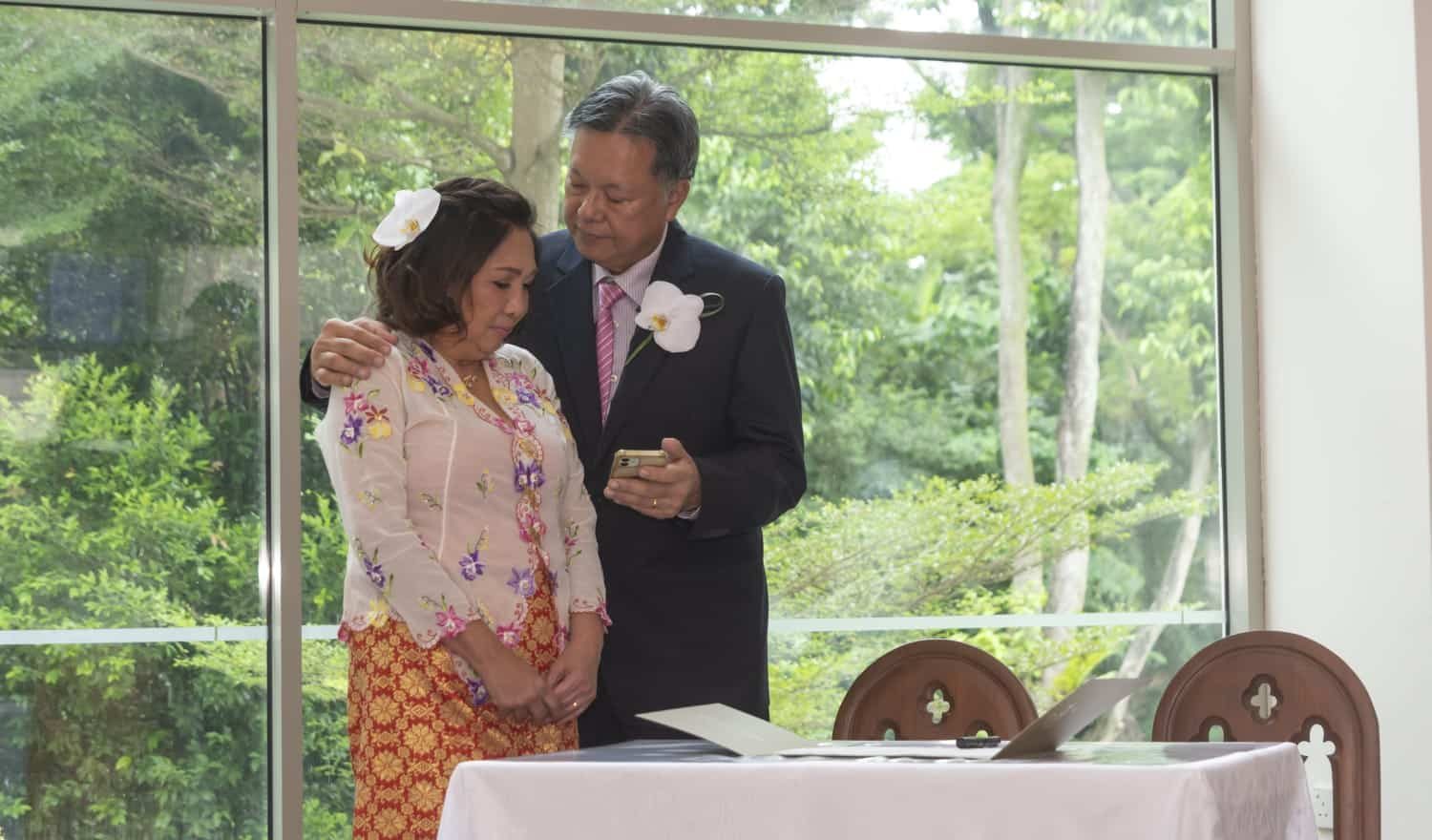We have five generations in our churches today. Can we bridge the generation gap?
by Christine Leow // May 2, 2024, 5:10 pm

Because of longer life expectancies, we now have five generations in churches. But that has also created more opportunities for generation gaps to divide the churches. Photo from Depositphotos.com.
In their youth, they served in church with great fervour. Then their kids came along and family became their focus.
This is the archetypal Gen X Christian, who prefers a more involved style of parenting.
The Boomer believer cannot understand this. They had carried on serving in church even after their children came. To cease service for kids seems, to their minds, weak.
Their perspective, in turn, makes the Gen Xs feel unsupported by the church. They feel valued only for their ability and willingness to serve, and nothing else.
This is just one example of a generational difference we might find in our churches. And there are many more, from parenting preferences to worship song choices and leadership styles.
While these differences can be divisive, they need not be, said panellists at D6 Family Night in February, titled Loving and Serving Across Generations.
Five generations, one church
Opening the session, panellist Ho Wei Hao painted a broad picture of local congregations today and noted that we are at “a unique point in history”.
“We’ve had a great increase in life expectancy. There are more generations alive at the same time as compared to the past,” said Wei Hao, who co-authored The Generations Project, a research study on the intergenerational Church in Singapore.

Ho Wei Hao co-authored The Generations Project and shared its findings on D6 Family Night. Photo courtesy of Graceworks.
The study identified five different generations co-existing in Singapore churches: the Silent Generation (1928-1945), the Baby Boomers (1946-1964), the Gen Xs (1965-1980), the Millennials (1981-1996) and the Gen Zs (1997-2012).
Each generation has been shaped by different formative events.
The Silent Generation endured World War II and the Great Depression. They had passed on the values shaped by the war and its aftermath to the next generation, the Baby Boomers.
Gen Xs have experienced both the pre-Internet and the Internet era.
The Millennials were born into a largely peaceful world.
Gen Zs have never known a world without the Internet.

The Generations Project research involved over 130 in-depth interviews with people from 63 churches across 10 denominations, as well as some 3,000 online interviews. Photo courtesy of The Generations Project.
“Because of these different cultural influences, we get many different groups of people in our church who may approach issues from very different perspectives,” explained Wei Hao.
Therefore, if we want to build a united, diverse and interdependent church, we must have a proper understanding of each generation, he added.
A perspective gap
Without this understanding, it is easy for each generation to fill in the gaps with stereotypes that deepen the divide, said the panellists as they shared some examples.
Benjamin Matthew, a 21-year-old who was called into full-time ministry in his teens, said that those from his generation, the Millennials, tend to have a lot of suggestions and critiques about building the church.
The older generation feels that the younger ones are quick to make suggestions but slow to offer to do the work. In turn, the Millennials view such a response as a lack of trust in them, he added.
Giving another example, Pastor Charissa Cho, Youth and Young Adult Pastor at Community of Praise Baptist Church, said: “When I am relating to someone who is older, my assumption may be that whatever you’re telling me is you just thinking that I’m doing something wrong. You just want to correct me and have it your way.
“But that may not be the case. It may be that I’m too proud to listen.

Ps Charissa Cho was a panellist on D6 Family Night. Screengrab from D6 Family Night.
“Likewise for the older generation, the assumption may be that (the younger ones) are too immature, too rash. But it may simply be that I’m not used to the ideas that are brought to the table.”
A mass exodus
These generational differences have caused an exodus of some generations.
In the early 2000s to about 2010, many Gen Xs, wanting to focus on their children, left their churches for ones with vibrant children’s or youth ministries.

Benjamin Mathew represented the voice of the Millennials. Screengrab from D6 Family Night.
Those who remained in their churches scaled back on serving in church to concentrate on their families, creating a leadership vacuum in many churches.
Millennials stepped in to fill this vacuum, but because they and the Baby Boomers are “so fundamentally different in their formative experiences”, clashes inadvertently ensue, said Wei Hao.
Millennials then start leaving their churches too, continuing the vicious cycle. Many end up in churches with primarily younger people, resulting in mono-generational churches, he added.
Bringing the generations together
So what can we do about these issues?
Instead of avoiding one another, we should make an effort to interact more closely with one another, said the panellists.
Wei Hao noted out that in close to all of our churches, there are very few activities that are geared towards bringing the generations together.
“If we were to take time to understand the heart of each person, maybe we will come to realise that we’re not really that different after all.”
For example, 99% of churches in Singapore are structured in what is called a Mickey Mouse model. The main congregation, the face, is the adult congregation. It is flanked by the two “ears”: Youth Service and Sunday School.
“We are essentially structured for inter-generational division … That is why there is so much tension and misunderstanding,” he said.
To foster unity, Benjamin’s church, Alive Community Church, has the youths join the adults in worship on some weeks. This also gives the youths an opportunity to serve the older generation by being part of the worship, ushering or helping with refreshments.
Ps Charissa added that such intergenerational worship services are vital because they teach everyone to serve each other in ways that may not suit their preferences.
There are also many other simple ways to help bring the generations together, shared the panellists.
Apart from intergenerational worship four times a year, Jonathan’s church, Bethesda Frankel Estate Church, invites everyone to have breakfast together before the service.
At Ps Charissa’s church, adults cook for the youths during their exam periods as an expression of love. Adults and youths at her church are also encouraged to work together on projects.
Relationships matter
Ps Charissa has also realised that differences dissolve when we focus more on developing relationships with each other.
Speaking on her experience with her youths, she said: “Each youth has an individual journey that they are on. When I ignore taking time to get to know them individually, I also forgo the opportunity to learn about their hearts.
“If we were to take time to understand the heart of each person, maybe we will come to realise that we’re not really that different after all.”
Benjamin agreed: “If your interest is really aligned with the plan of God for your church and not in building your own church, then we will realise that if differences are evident, it’s probably because we make them out to be a lot more evident.”

How the younger generation views parenting compared to the older generation has ramifications on how they view service in church. Photo from Depositphotos.com.
With that in mind, there is much one generation can learn from the other.
“The generations before us have more life experience. My generation has come to realise we need the support of the elders, we need the wise counsel,” said Benjamin.
“If we don’t partner with previous generations to invest in the lives of our young people, our youths will look elsewhere for counsel. They will look outside the walls of the church and they may never return. So unity is just so important.”
Added Ps Charissa: “Sometimes the young person, even though we may feel like we know what is happening, may lack the discernment and the patience to really unpack and to get to the heart of the matter. And we end up just treating the symptoms.
“If we take time to allow people who are more experienced, who are more mature to walk with us, perhaps we have a better chance at also then getting to the root of the matter.”
RELATED STORIES:
Hello, you’re muted: A millenial speaks up about inter-generational dialogue
We are an independent, non-profit organisation that relies on the generosity of our readers, such as yourself, to continue serving the kingdom. Every dollar donated goes directly back into our editorial coverage.
Would you consider partnering with us in our kingdom work by supporting us financially, either as a one-off donation, or a recurring pledge?
Support Salt&Light


